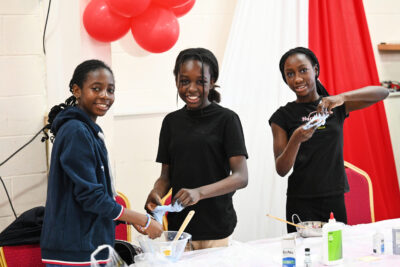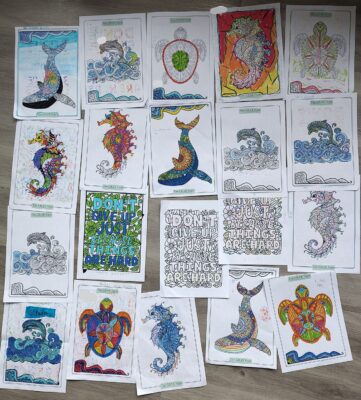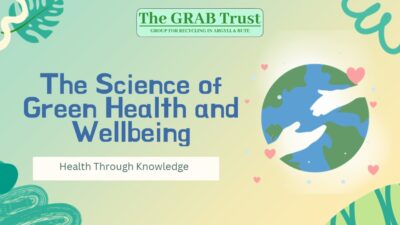Lifegate Outreach Centre
During British Science Week, Lifegate Outreach Centre engaged 19 enthusiastic children and young people aged 7–16 in a two-day hands-on science event designed to spark curiosity and confidence in STEM.
Participants explored chemistry through practical activities such as slime-making, paper chromatography, and crystal-growing. Many were seeing this kind of real life chemical reactions for the first time.
The event fostered teamwork, creativity, and inquiry-based learning; the children and young people gained a deeper understanding of how science connects to their everyday lives. Building on the momentum, the Centre also introduced follow-up online sessions in coding and robotics to expand digital STEM skills. Overall, the project inspired greater interest in science and helped challenge stereotypes about who can pursue STEM careers.

The Grab Trust
The GRAB Trust works with local communities to improve environmental awareness, recycling and reuse activities in Argyll and Bute.
 With the support of British Science Week 2025, the Grab Trust ran events to protect our fragile marine environments and empower communities and young people to ‘do their bit’ for the environment.
With the support of British Science Week 2025, the Grab Trust ran events to protect our fragile marine environments and empower communities and young people to ‘do their bit’ for the environment.
They ran five outdoor “Green ‘Health and Well Being’ workshops covering topics like eco anxiety , mental health awareness and self-care amid the climate crisis. They emphasised evidence from scientific studies on how mindfulness and green spaces help our wellbeing, and empower people to use their understanding of STEM to help them make greener choices.
Events included beach cleans and litter picks followed by an audit of the litter collected, explaining how collecting data will contribute to research to impact behaviour change. They explored sustainable swaps and everyday behaviour changes we can all make. Both our Beach and Marine Litter Project officers have STEM backgrounds, and this activity helped us share our career journey within science, and what STEM careers are possible in environmental research.

KRIMMZ Girls Youth Club
STEM workshops during British Science Week brought together women and girls from ethnic backgrounds to explore hands-on activities covering topics in chemistry, biology and physics. They also held a slime making workshop for young people.
The workshops were educational and fun, allowing the participants to experiment with science, a first time experience for many. The workshops had a real impact as they created a sense of interest in STEM subjects by making science relatable and accessible in everyday life.
Participants reported increased confidence discussing science. They were given the opportunity to build confidence and curiosity in science through the hands-on activities. Many reported that they felt more able to ask questions, solve problems, and see how STEM connects to real life. For younger participants, it was often their first time working with equipment and approaches they would normally only see in school labs.
One participant shared: “I didn’t think I was good at science before, but doing the experiments myself made me realise I can actually understand it, and it’s fun!”
BME Housing Consortium
BME Housing Consortium work in partnership with local BME, refugee, asylum seeker and migrant communities, existing long established communities, public health service users, carers, vulnerable individuals and independent adults to identify, assess and prioritise their housing, health, social care and support needs.
They delivered community workshops at local community groups, community centres and a church where they explained the physics and engineering principles of Newton’s three Laws of Motion to over 80 participants in a fun, practical and exciting way.
Participants built and raced Lego cars using ballon power, solar batteries, rubber bands, wind and pushing.
These activities broke down barriers, and stimulated interest and engagement in science through the creative process of “making” and “learning”.
Participants learned about the principles of force, motion, propulsion, centre of gravity, drag, friction and aerodynamics. How reducing mass and friction and increasing acceleration will improve the speed of the Lego cars.